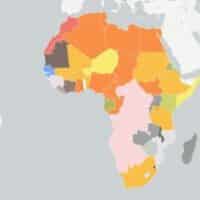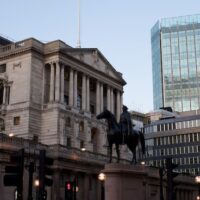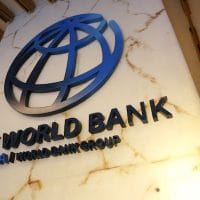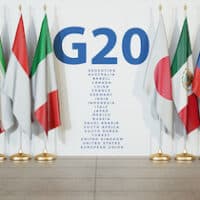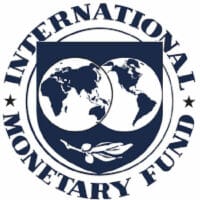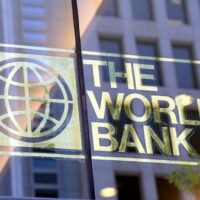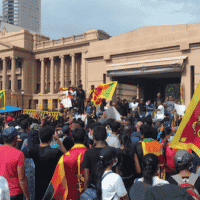-
Plundering Africa–Income deflation and unequal ecological exchange under structural adjustment programmes
Presenting new research, Dylan Sullivan and Jason Hickel mount a devastating critique of the impact of structural adjustment in Africa in the 1980s and 1990s. Drawing on recent data on Africa’s material resource use, Sullivan and Hickel show how during this period structural adjustment programmes led to a significant increase in ‘unequal ecological exchange’, a process whereby African countries were compelled to export more materials, energy, and other resources than they received in imports. The difference between the two, Sullivan and Hickel argue, represented a transfer of real tangible materials from Africa to the capitalist world economy, for free.
-
The Promethean aspirations of the darker Nations: The Fourth Newsletter (2025)
The U.S. sees the emergence of China and other Asian countries as a ‘fierce competition’. For the Global South, however, these developments bring new opportunities to pursue sovereign development.
-
Central bank independence as class war strategy
Insulated from popular discontent, independent central banks have free reign to undermine workers’ rights and further the neoliberal agenda, argues John Clarke.
-
If I understand the world, I can march to change it: The Eighth Newsletter (2024)
In December 2023, the Organisation for Economic Cooperation and Development (OECD) released a stunning report showing that, since 2018, literacy in reading and mathematics has declined amongst the world’s students.
-
World Bank enables private capture of profits, public resources
The World Bank insists private finance is needed for economic recovery and the Sustainable Development Goals but does little to ensure profit-hungry commercial finance serves the public interest.
-
The silences of the Delhi declaration
THE G-20 meeting in Delhi was occurring in the midst of an acute economic crisis of the world economy.
-
Argentina: The IMF, a euphemism for politics
In recent times, any analysis on Argentine politics or the Argentine economy does not fail to mention the IMF as one of the fundamental, if not decisive, actors of national events. And its influence on the Government’s decision-making process, on what it does or does not do, more than deserves this recognition.
-
The impending world recession
The IMF managing director Kristalina Georgieva has now openly admitted that the year 2023 will witness the slowing down of the world economy to a point where as much as one-third of it will see an actual contraction in gross domestic product.
-
Developing countries need monetary financing
Developing countries have long been told to avoid borrowing from central banks (CBs) to finance government spending. Many have even legislated against CB financing of fiscal expenditure.
-
Inflation phobia hastens recessions, debt crises
SYDNEY and KUALA LUMPUR, Sep 27, 2022 (IPS)—Inflation phobia among central banks (CBs) is dragging economies into recession and debt crises. Their dogmatic beliefs prevent them from doing right. Instead, they take their cues from Washington: the U.S. Fed, Treasury and Bretton Woods institutions (BWIs). Costly recessions Both BWIs—the International Monetary Fund (IMF) and World […]
-
Real debt trap: Sri Lanka owes vast majority to West, not China
Sri Lanka owes 81% of its external debt to US and European financial institutions and Western allies Japan and India. China owns just 10%. But Washington blames imaginary “Chinese debt traps” for the nation’s crisis, as it considers a 17th IMF structural adjustment program.
-
I cannot live on tomorrow’s bread: The Seventeenth Newsletter (2022)
On April 19, the International Monetary Fund (IMF) released its annual World Economic Outlook, which forecasted a severe slowdown in global growth along with soaring prices. ‘For 2022, inflation is projected at 5.7 percent in advanced economies and 8.7 percent in emerging market and developing economies–1.8 and 2.8 percentage points higher than projected in… January.’
-
These dark times are also filled with light: The Sixteenth Newsletter (2022)
In early March, Argentina’s government came to an agreement with the International Monetary Fund (IMF) on a $45 billion deal to shore up its shaky finances. This deal was motivated by the government’s need to pay a $2.8 billion instalment on a $57 billion IMF stand-by loan taken out under former President Mauricio Macri in 2018.

